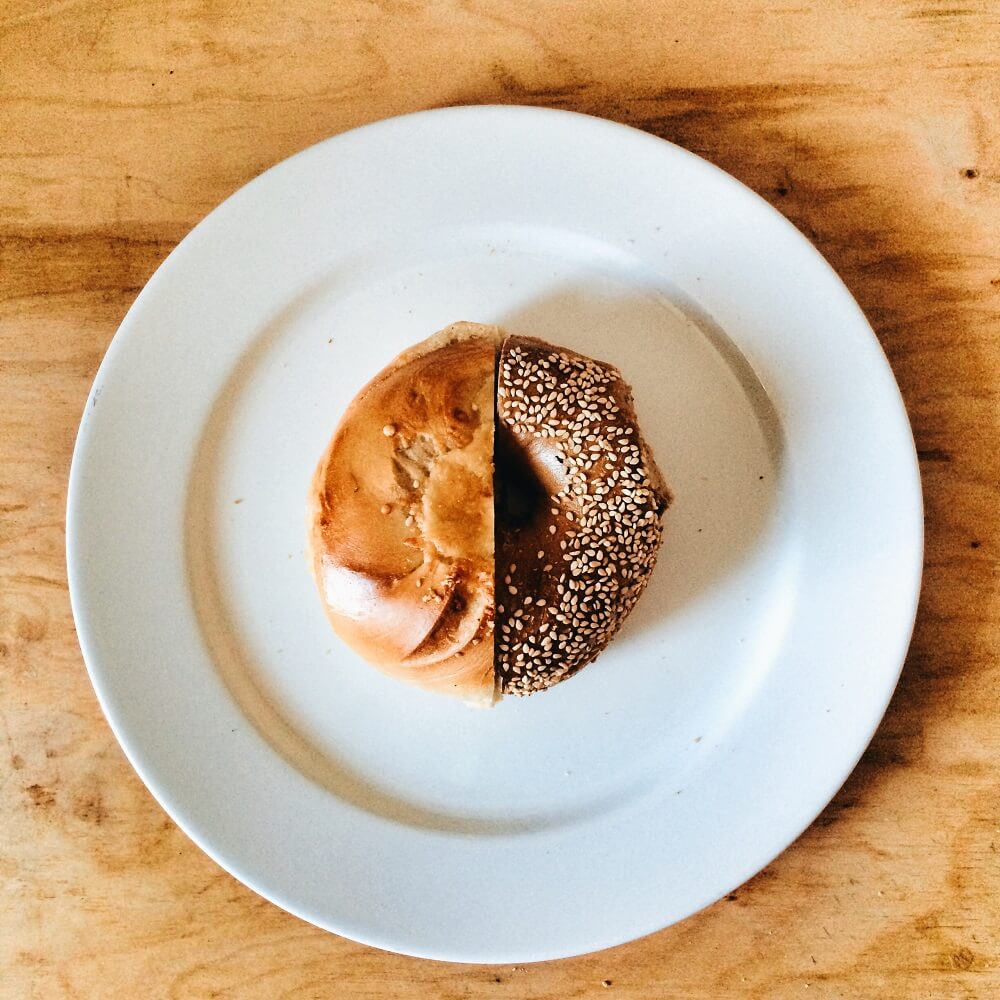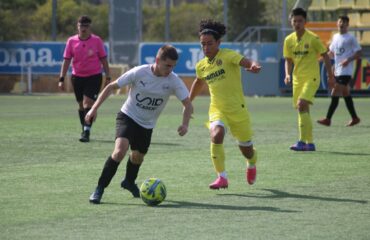It has been shown that during exercise the body obtains the energy it needs from 2 main nutrients: fats and carbohydrates. The proportion used of each will depend on the following factors:
- Exercise intensity.
- Duration of exercise.
- Pre-exercise carbohydrate stores.
- Training level of the player.
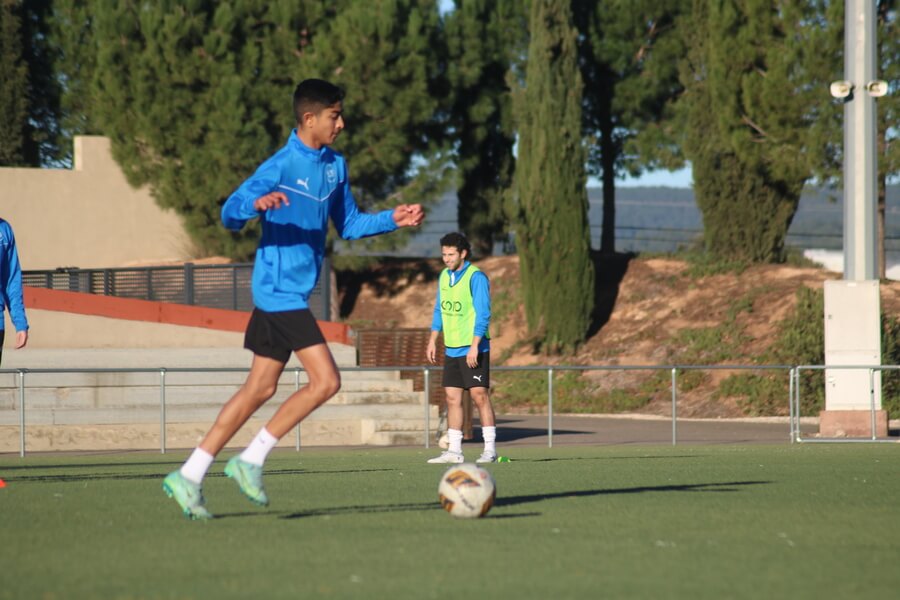
Thus, it is observed that carbohydrates are the fuel used in the highest proportion for high/moderate intensity exercise.

Over the last four decades, the development and use of new technologies, such as video filming and GPS, have made it possible to study in detail the physiological demands of football.
Football is a sport that combines periods of relatively low activity with bursts of very intense activity (sprints, jumps, etc.) with increasing intensity. Although players cover most of the distance (10-13 km) walking and running at low intensity, it is the high intensity exercise activities that are associated with the critical moments during a football match and where higher carbohydrate availability is required.
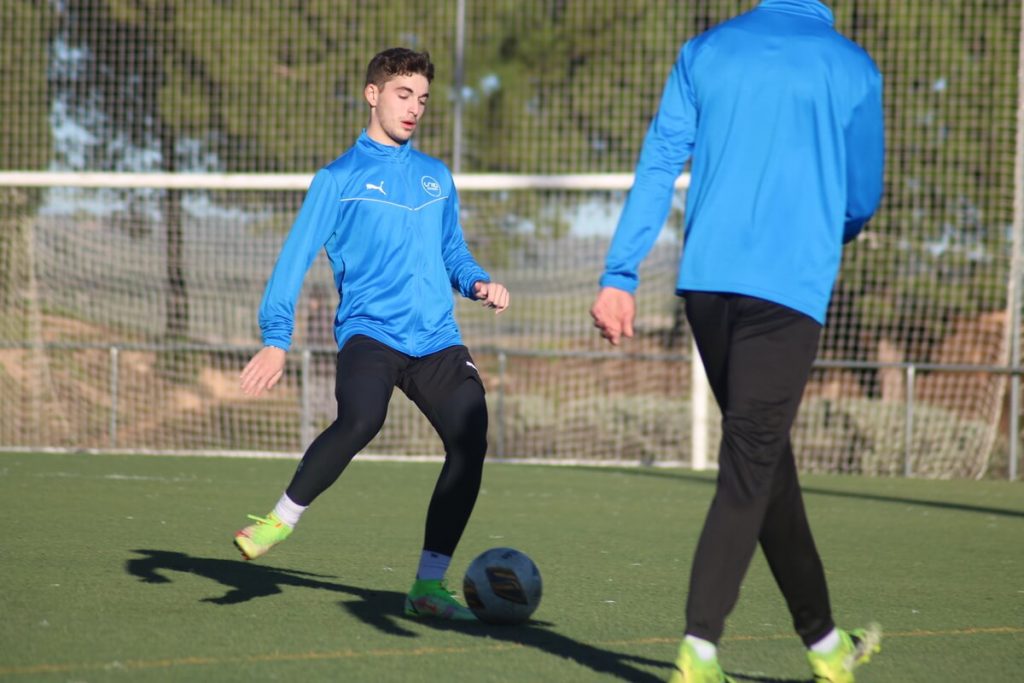
The availability of carbohydrates will depend on the body’s reserves of this nutrient, and this is where dietary intake plays a key role.

IMPORTANCE OF CARBOHYDRATE RESERVES
This fuel is stored in the liver (liver glycogen) and muscle (muscle glycogen). Both reserves have a limited lifespan and tend to be depleted quickly, especially when the demands of explosive movements are more frequent during training/matches.
When carbohydrate stores are inadequate to meet energy needs during a training/match, performance will be negatively affected in both technical and cognitive parameters of the player.
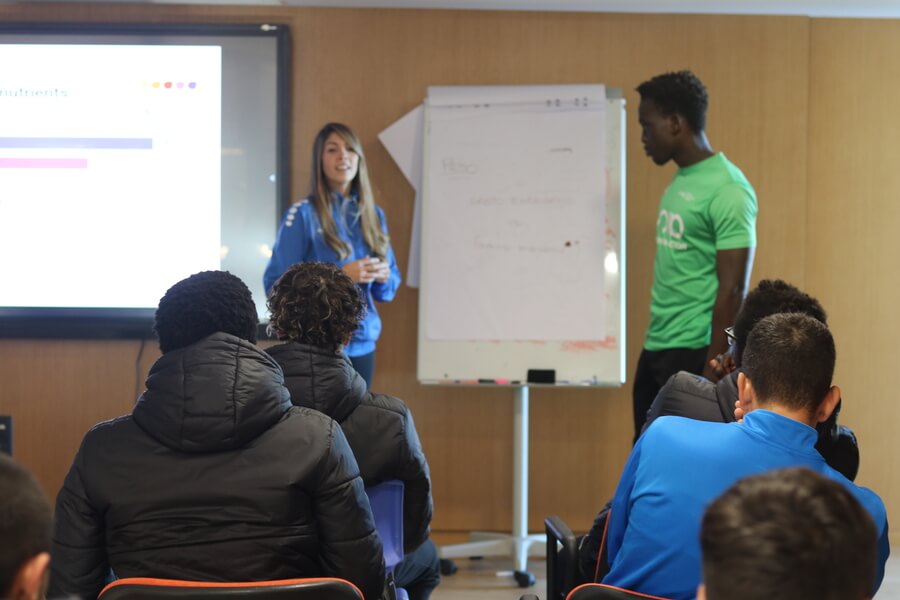
In this regard, studies have shown that low levels of muscle glycogen before a competition, or pre-match meal as it is known, affect:
- The execution of skills such as agility, rhythm, among others.
- Decision-making.
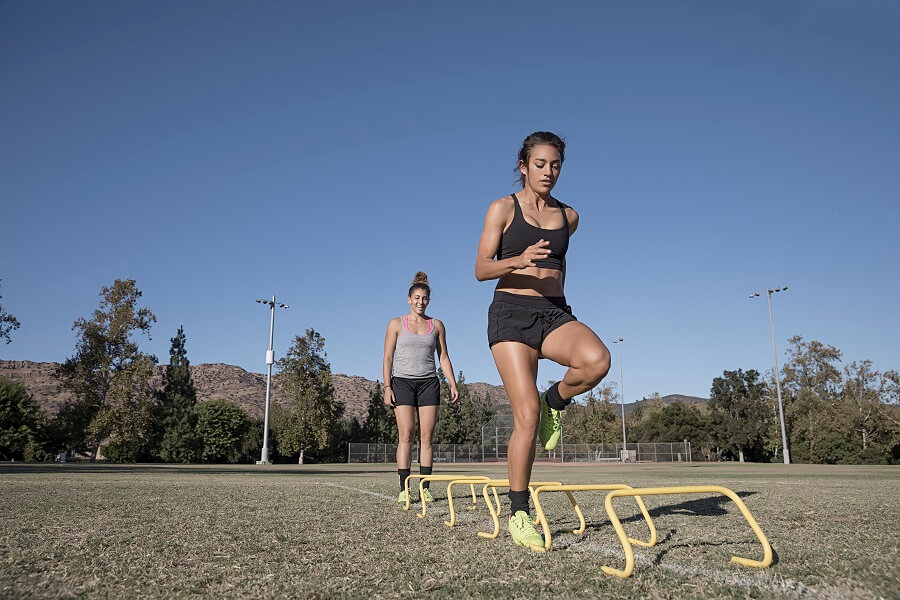
Which translates into:
- Reduced distance covered at high intensity towards the latter stages of a match.
- Increased risk of injury towards the end of a game.
Given the role of muscle and liver glycogen in energy support it is important to consider feeding strategies and carbohydrate intake as part of training goals.

STRATEGIES FOR CARBOHYDRATE INTAKE IN FOOTBALL
The first step of the strategy is to make players aware of the implications related to the amount and timing of carbohydrate intake on sports performance, emphasising the heavy reliance on endogenous reserves for energy and taking into consideration that the availability of carbohydrate storage is sufficient to cover the needs of a single day of high-intensity training.
The second step is to plan the diet by establishing a carbohydrate intake to sustain training loads, prevent fatigue and facilitate recovery between sessions. It is important to take into consideration that the type of carbohydrate source should be adjusted to the player’s preferences, tolerance and accessibility to ensure compliance.
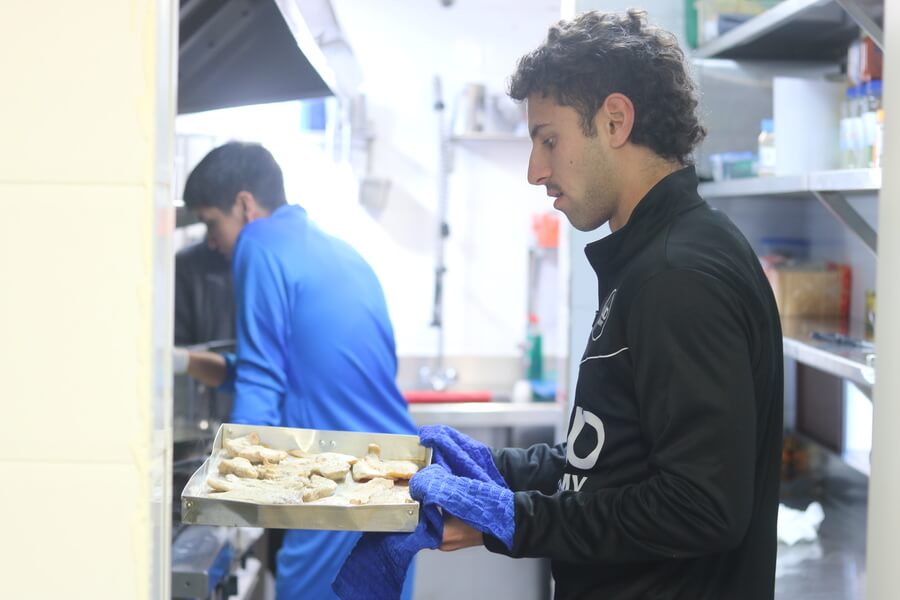
CARBOHYDRATE REQUIREMENTS IN FOOTBALL
This planning should guarantee an intake of 3 to 8 g/kg body weight per day. The specific intake should be adapted to the duration, intensity and objective of the training schedule..
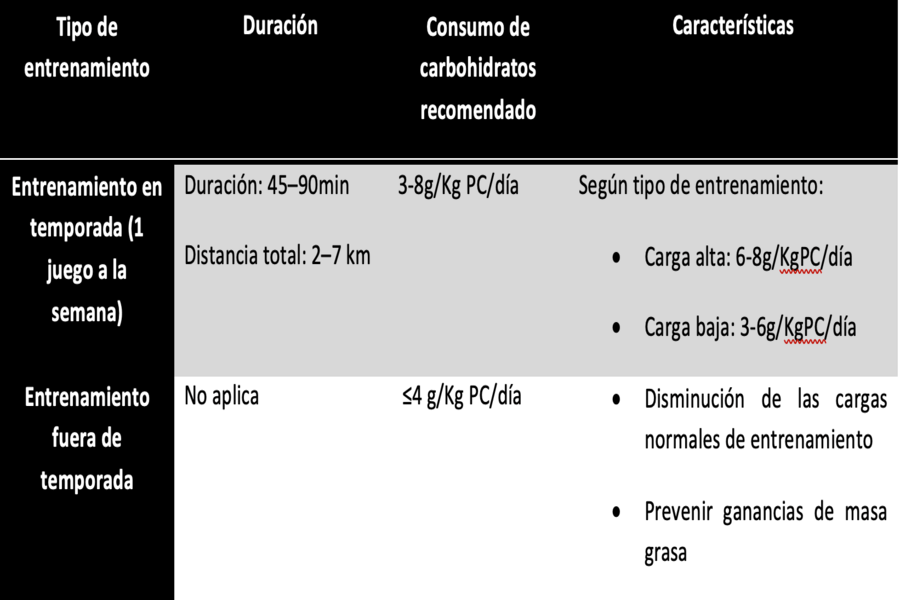
Collins J, et al. Br J Sports Med 2020;0:1–27. doi:10.1136/bjsports-2019-101961
Another key factor is the distribution of this carbohydrate intake throughout the day:
CARBOHYDRATES PRE-TRAINING/MATCH or PRE-MATCH
The pre-match meal is of particular importance for the promotion of liver glycogen stores, especially when the training/match is early in the morning as liver glycogen stores can be reduced by approximately 50% after an overnight fast.
- The recommendation to start the training/match with adequate glycogen stores is to consume 1-3 g/kg CP during the 3-4 hours prior to the session.
Examples of foods with fast-absorbing carbohydrate intake
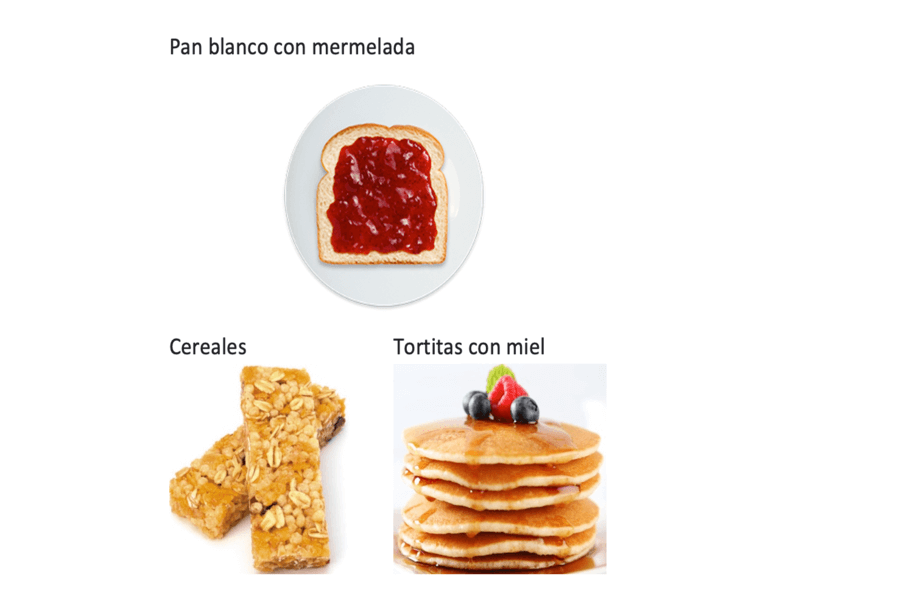
If the match/training takes place within 3-4 hours after the meal, the carbohydrate supply to the muscle glycogen store would be covered by the portion of rice, pasta or potato it contains.
CARBOHYDRATES DURING TRAINING/MATCH
Scientific evidence indicates that carbohydrate intake during (including half-time) exercise is associated with the maintenance of high-intensity running and skill performance. This carbohydrate intake allows the availability of blood glucose to prolong the use of carbohydrate stores, thereby prolonging their duration and preventing fatigue.
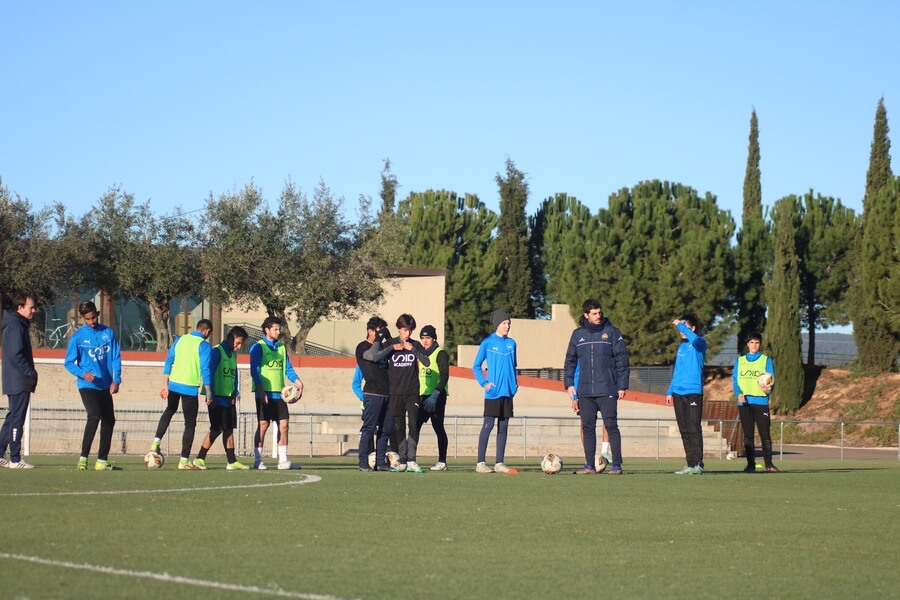
- The recommended intake during training/match is 30-60g of carbohydrates right after the warm-up and at half-time. This intake is recommended to be covered by gels or sports drinks which usually improve tolerance and prevent gastrointestinal problems.
Example: sports gels

POST-WORKOUT/MATCH CARBOHYDRATES
The main objective after a competitive match is to reduce the time needed to fully recover, so it is essential to replenish CHO reserves.
- Post-match meals and snacks should target a carbohydrate intake of 1 g/kg CP/hour for 4 hours.
Example: Protein and carbohydrate recovery foods
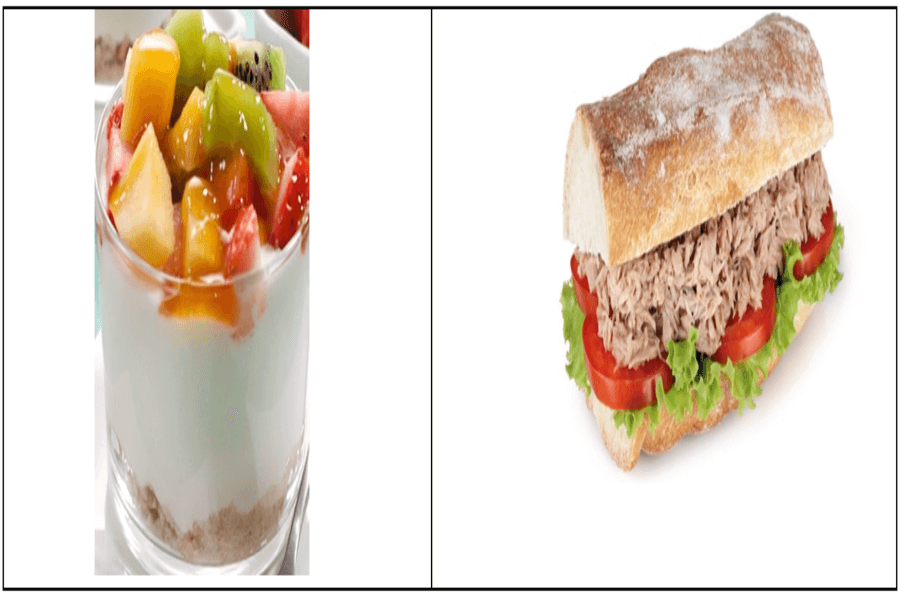
TYPES OF CARBOHYDRATES
Not all carbohydrates are the same. Their chemical structure and their relationship with other nutrients present in the food determine the speed of their breakdown and therefore their ability to increase the concentrations of glycogen deposits in the blood once ingested. The study of these properties has allowed their classification through the so-called glycaemic index (GI) of foods.
The glycaemic index allows foods to be divided according to their ability to affect blood glucose levels. Carbohydrate sources with a low GI value (55 or less) are digested, absorbed and metabolised more slowly and cause a lower and slower rise in blood glucose and thus insulin levels. In contrast, a high GI (70-100) indicates rapid absorption and delivery of carbohydrates into the circulation.

It is important to note that the use of this classification should be done with caution, as its application will depend on the nutritional objective and the characteristics of the person to whom it is applied. In this case, we will relate it only to its use in sports. The ideal carbohydrate during exercise is rapidly emptied from the stomach, does not need to be digested or is digested very quickly, is rapidly absorbed and can be used immediately by the muscle.
On this basis, the shorter the period between consumption and exercise, the more beneficial it is to use high glycaemic index carbohydrates, which allow rapid digestion and availability in the blood. However, if the period between intake and exercise is prolonged, moderate or low glycaemic carbohydrate sources should be used.
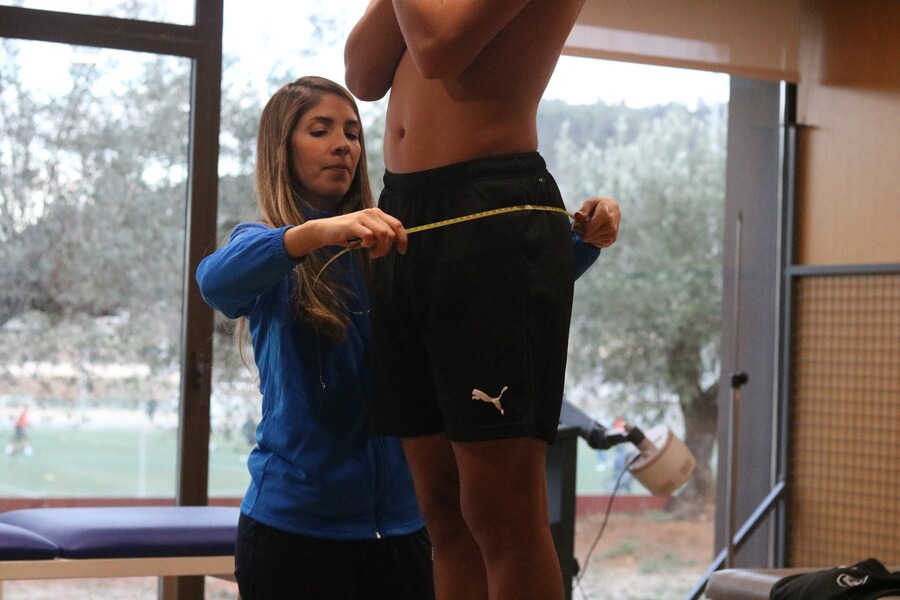
On the other hand, it is necessary to clarify that, in addition to the type of carbohydrate, other aspects such as the amount to be consumed should be assessed depending on the individual characteristics of the player.
CONCLUSIONS ON CARBOHYDRATE CONSUMPTION
- Carbohydrates are the primary macronutrient for improving performance in football.
- Daily carbohydrate intake should be proportional to the estimated fuel cost of the training session or match.
- The consumption of sufficient amounts of carbohydrates before a match day by football players is probably the most important strategy for football performance. This is because the opportunity to consume sufficient carbohydrate grams during the game is limited to infrequent breaks in play and half-time.
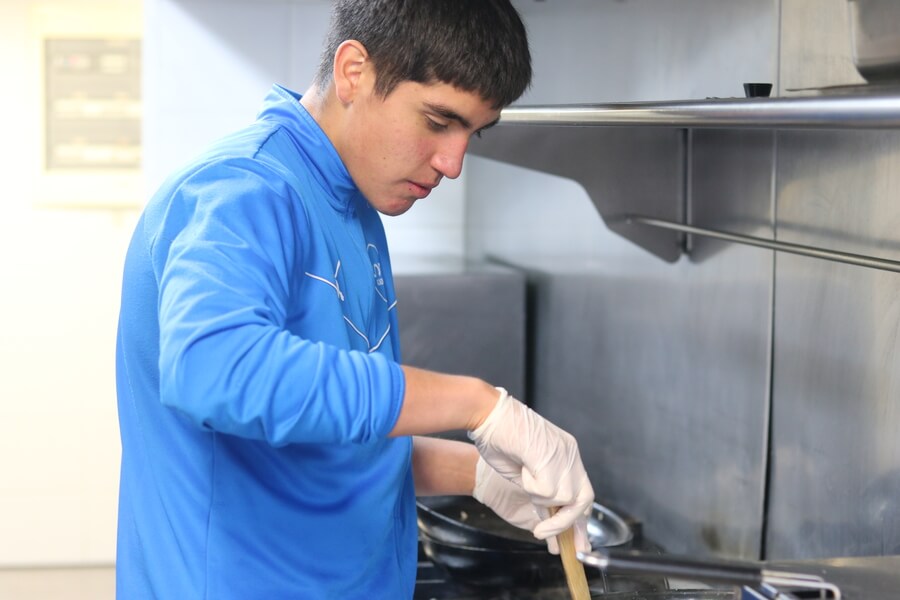
- Appropriate strategies to support a player’s recovery from training and matches are fundamental to the team’s overall ability to perform repeatedly. The aggressiveness of the recovery strategy will depend on when the player is required to return to play, whether in training or competition and becomes increasingly important in tournament situations.
- Analysis of top level football has revealed that the ability to maintain high intensity running and skill mastery levels, especially in the final stages of a match, are key attributes of a top level player and a successful team. As mentioned above, both of these properties are dependent on a good carbohydrate delivery strategy.



